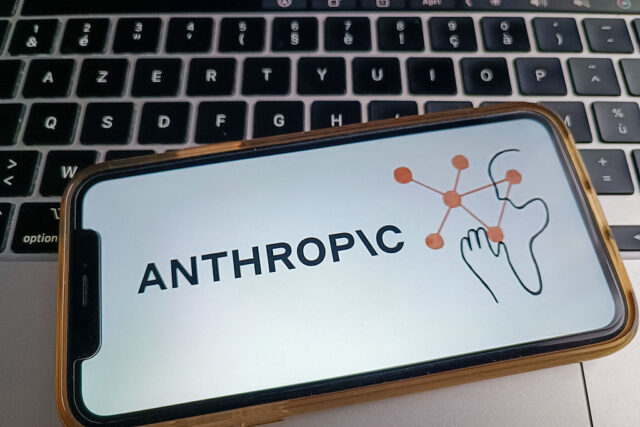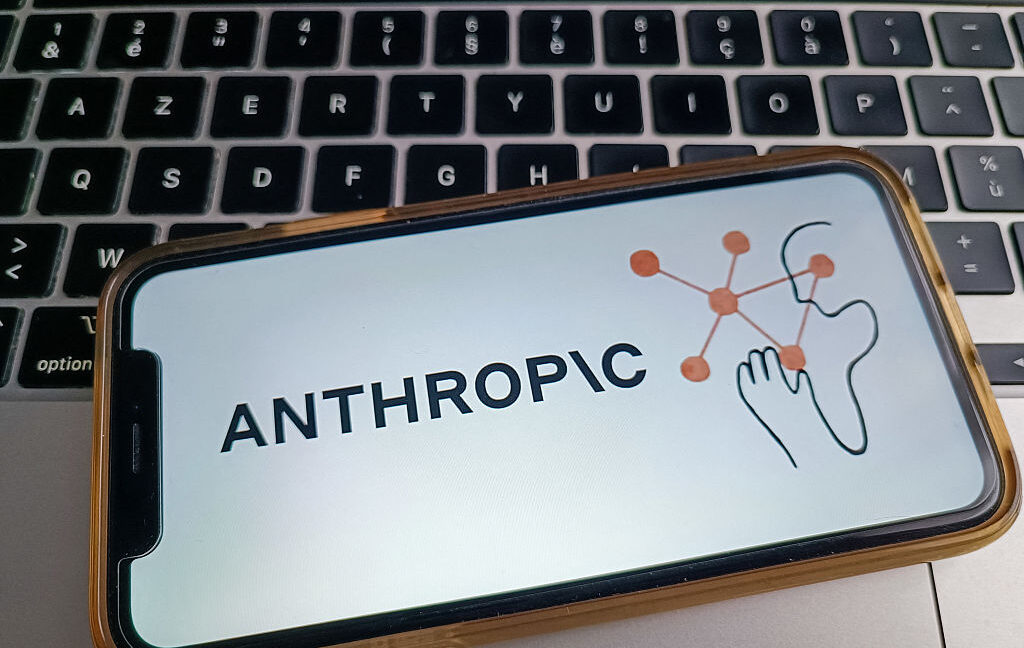- Регистрация
- 17 Февраль 2018
- Сообщения
- 38 930
- Лучшие ответы
- 0
- Реакции
- 0
- Баллы
- 2 093
Offline
Advocates fear such settlements will "financially ruin" the AI industry.


Credit: RICCARDO MILANI / Contributor | AFP
Authors are celebrating a "historic" settlement expected to be reached soon in a class-action lawsuit over Anthropic's AI training data.
On Tuesday, US District Judge William Alsup confirmed that Anthropic and the authors "believe they have a settlement in principle" and will file a motion for preliminary approval of the settlement by September 5.
The settlement announcement comes after Alsup certified what AI industry advocates criticized as the largest copyright class action of all time. Although the lawsuit was raised by three authors—Andrea Bartz, Kirk Wallace Johnson, and Charles Graeber—Alsup allowed up to 7 million claimants to join based on the large number of books that Anthropic may have illegally downloaded to train its AI models.
If every author in the class filed a claim, industry advocates warned, it would "financially ruin" the entire AI industry.
It's unclear if the class certification prompted the settlement or what terms authors agreed to, but according to court filings, the settlement terms are binding. A lawyer representing authors, Justin A. Nelson, told Ars that more details would be revealed soon, and he confirmed that the suing authors are claiming a win for possibly millions of class members.
"This historic settlement will benefit all class members," Nelson said. "We look forward to announcing details of the settlement in the coming weeks."
Ars could not immediately reach Anthropic for comment, but Anthropic had previously argued that the lawsuit could doom the emerging company, which was started by former OpenAI employees in 2021.
It seems likely that facing "hundreds of billions of dollars in potential damages liability at trial in four months" pushed the company to settle—particularly since industry advocates noted that one risk of Alsup certifying such a large class action is that it paved the way for any AI company to simply fold when facing such substantial damages, regardless of the merits of their case. Wired estimated that damages could have gone even higher, with Anthropic potentially risking "more than $1 trillion in damages."
Alsup had previously ruled that Anthropic's training on authors' works was "fair use," so the settlement likely won't obscure the answers to any big emerging copyright questions still swirling in the AI industry. Advocates had warned that the possibility may be the outcome of the surprising class certification, setting a precedent.
Apparently, Anthropic's decision to settle came as the AI company was struggling with its legal strategy. Edward Lee, an AI copyright expert and law professor at Santa Clara University, told Wired that the settlement is "a stunning turn of events, given how Anthropic was fighting tooth and nail in two courts in this case. And the company recently hired a new trial team."
But perhaps Anthropic's pivot to bringing in new legal expertise came too late, or the legal team saw the writing on the wall. Lee noted that the company "had few defenses at trial, given how Judge Alsup ruled. So Anthropic was starting at the risk of statutory damages in ‘doomsday’ amounts.”


Credit: RICCARDO MILANI / Contributor | AFP
Authors are celebrating a "historic" settlement expected to be reached soon in a class-action lawsuit over Anthropic's AI training data.
On Tuesday, US District Judge William Alsup confirmed that Anthropic and the authors "believe they have a settlement in principle" and will file a motion for preliminary approval of the settlement by September 5.
The settlement announcement comes after Alsup certified what AI industry advocates criticized as the largest copyright class action of all time. Although the lawsuit was raised by three authors—Andrea Bartz, Kirk Wallace Johnson, and Charles Graeber—Alsup allowed up to 7 million claimants to join based on the large number of books that Anthropic may have illegally downloaded to train its AI models.
If every author in the class filed a claim, industry advocates warned, it would "financially ruin" the entire AI industry.
It's unclear if the class certification prompted the settlement or what terms authors agreed to, but according to court filings, the settlement terms are binding. A lawyer representing authors, Justin A. Nelson, told Ars that more details would be revealed soon, and he confirmed that the suing authors are claiming a win for possibly millions of class members.
"This historic settlement will benefit all class members," Nelson said. "We look forward to announcing details of the settlement in the coming weeks."
Ars could not immediately reach Anthropic for comment, but Anthropic had previously argued that the lawsuit could doom the emerging company, which was started by former OpenAI employees in 2021.
It seems likely that facing "hundreds of billions of dollars in potential damages liability at trial in four months" pushed the company to settle—particularly since industry advocates noted that one risk of Alsup certifying such a large class action is that it paved the way for any AI company to simply fold when facing such substantial damages, regardless of the merits of their case. Wired estimated that damages could have gone even higher, with Anthropic potentially risking "more than $1 trillion in damages."
Alsup had previously ruled that Anthropic's training on authors' works was "fair use," so the settlement likely won't obscure the answers to any big emerging copyright questions still swirling in the AI industry. Advocates had warned that the possibility may be the outcome of the surprising class certification, setting a precedent.
Apparently, Anthropic's decision to settle came as the AI company was struggling with its legal strategy. Edward Lee, an AI copyright expert and law professor at Santa Clara University, told Wired that the settlement is "a stunning turn of events, given how Anthropic was fighting tooth and nail in two courts in this case. And the company recently hired a new trial team."
But perhaps Anthropic's pivot to bringing in new legal expertise came too late, or the legal team saw the writing on the wall. Lee noted that the company "had few defenses at trial, given how Judge Alsup ruled. So Anthropic was starting at the risk of statutory damages in ‘doomsday’ amounts.”
